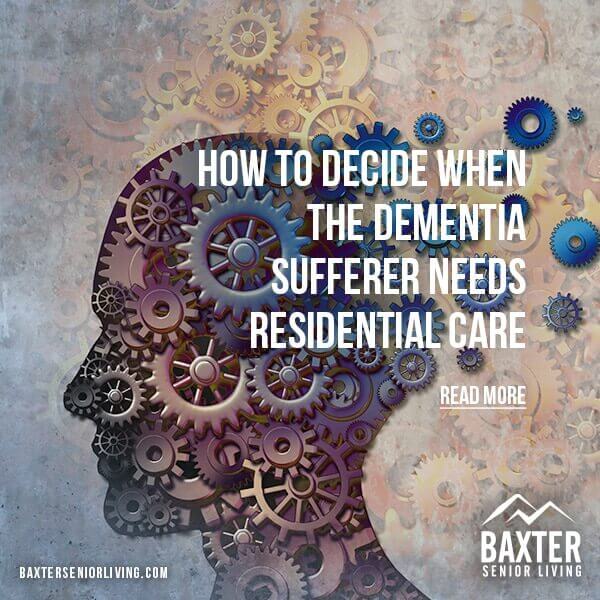In 2018, there were 5.4 million people living with dementia caused by Alzheimer’s or other diseases. Eighty percent of these sufferers lived at home, most cared for by unpaid friends and family members. If you’re one such caregiver, you’ve probably though about if or when you should move your loved one to residential care.
Caregiving for a parent, friend, or spouse with dementia is a draining and difficult task, even when it’s done in love, as it often is. Even thinking about moving a loved one to memory care can feel like a defeat. But the vast majority of diseases causing dementia are progressive and fatal. A move to a residential facility is often the only way to preserve the patient’s comfort and safety in her final days.
Here are some questions to ask yourself when considering whether it’s time to start looking at memory care facilities:
- Is your health suffering? The bottom line is, you can’t be an effective or safe caregiver if you are sick. The daily drumbeat of nursing a dementia patient is both exhausting and time-consuming. You may no longer be exercising or eating well. You might be missing important preventive health doctor’s appointments while putting the patient’s need for medical visits above your own. And, if you are one of the many spouses caring for a partner dying of dementia, you may be leaving your own age-related maladies untreated. Though it’s counterintuitive, taking care of yourself is the best way to take care of your loved one, because you can’t be there for him if you’re ill. If you’ve reached that point, it’s in both your best interests to consider residential care.
- Is your loved one’s anxiety becoming overwhelming? Anxiety and depression are symptoms of dementia that increase as the disease progresses. Most caregivers are familiar with the signs: “sundowning,” that is increased agitation and confusion in the late afternoon and evening; social isolation; increased sleeping or, conversely, insomnia; loss of interest in old hobbies, friends, and family; constant complaints that nothing seems (tastes, feels, fits) right; agitation over imaginary responsibilities or appointments; wandering. As your loved one forgets how to interact with the real world, her fears and anxieties balloon and it’s very difficult, without extensive training and specialized facilities, for you to provide the reassurances she wants. This is what dedicated memory care units and their staff are designed to do.
- Is your loved one safe at home? This is a hard question to face when you are working so hard to care for a dementia sufferer. Everything you’re doing is geared toward his comfort and safety. And yet, as dementia progresses, it becomes increasingly dangerous to leave the patient for even a moment. Wandering, mixing up medicines, falling–all of these are potentially fatal situations that someone with dementia can get into in very little time. When it becomes necessary to monitor him every minute, it’s time to consider a well-staffed residential care facility.
Caring for the dementia sufferer at home is a tremendous act of love, and it can be hugely difficult to admit that you can no longer do so safely. But ask yourself these three questions and consider whether your loved one would be more comfortable and secure in a residential care facility. An honest answer may be the greatest gift you can give her.
Baxter Senior Living is a Senior Housing Community that will be located in Anchorage, Alaska off of Baxter Road. If you are seeking Anchorage Senior Housing, or Assisted Living Facilities in Alaska please contact us today to make your reservations. (907) 891-9696 or fill out our contact form and we will be in touch! contact us
Learn more about Baxter Senior Living Alaska Memory Care Services and Facilities


